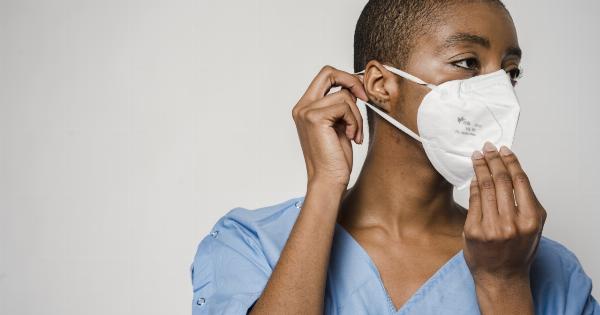Pneumonia is a serious and potentially life-threatening condition that affects the lungs. It is characterized by inflammation and infection in the air sacs, or alveoli, of the lungs, which can fill with fluid or pus.
This leads to symptoms such as coughing, fever, difficulty breathing, and chest pain. Pneumonia can be caused by a variety of pathogens, including bacteria, viruses, and fungi. It can affect people of all ages, but certain groups, such as the elderly, young children, and those with weakened immune systems, are at a higher risk.
Symptoms of Pneumonia
The symptoms of pneumonia can vary depending on the cause of the infection, the age of the individual, and their overall health. Common symptoms include:.
- Cough, which may produce phlegm or pus
- Fever, sweating, and chills
- Shortness of breath or difficulty breathing
- Chest pain that worsens with deep breathing or coughing
- Fatigue and weakness
- Loss of appetite
- Confusion (especially in the elderly)
If you experience these symptoms, it is important to seek medical attention promptly. Pneumonia can progress rapidly and lead to complications if left untreated.
Causes of Pneumonia
Pneumonia can be caused by a variety of infectious agents. The most common causes include:.
Bacterial Pneumonia
Bacterial pneumonia is often caused by Streptococcus pneumoniae, but other bacteria such as Haemophilus influenzae and Staphylococcus aureus can also be responsible.
Bacterial pneumonia can be severe and may require hospitalization, especially in the elderly or those with underlying health conditions.
Viral Pneumonia
The flu virus (influenza) is a common cause of viral pneumonia. Other viruses, such as respiratory syncytial virus (RSV) and adenovirus, can also cause pneumonia.
Viral pneumonia is usually less severe than bacterial pneumonia but can still lead to complications in certain individuals.
Fungal Pneumonia
Fungal pneumonia is typically seen in individuals with weakened immune systems, such as those with HIV/AIDS or those undergoing chemotherapy. Fungi such as Pneumocystis jirovecii and Aspergillus can cause pneumonia in these individuals.
Risk Factors for Pneumonia
While anyone can develop pneumonia, certain factors can increase the risk of infection. These include:.
- Age: The elderly and young children are more susceptible to pneumonia.
- Chronic Conditions: Individuals with chronic lung diseases (e.g., COPD), heart disease, diabetes, or weakened immune systems are at a higher risk.
- Smoking: Smoking damages the lungs and weakens the immune system, increasing the risk of pneumonia.
- Hospitalization: Hospital-acquired pneumonia can occur in individuals staying in healthcare facilities for extended periods, especially if on a ventilator.
- Close Contact: Being in close contact with someone who has pneumonia or a respiratory infection can increase the risk of infection.
Diagnosis and Treatment
Diagnosis of pneumonia usually involves a combination of medical history review, physical examination, and diagnostic tests. These tests may include:.
- Chest X-ray or CT scan
- Sputum analysis to identify the infectious agent
- Blood tests to check for signs of infection or determine the specific cause
- Pulse oximetry to measure the oxygen levels in the blood
The treatment of pneumonia depends on the cause of the infection. Bacterial pneumonia is often treated with antibiotics, while antiviral medications may be prescribed for viral pneumonia. Fungal pneumonia may require antifungal drugs.
In severe cases or when complications arise, hospitalization may be necessary.
Prevention of Pneumonia
Preventing pneumonia is crucial, especially for individuals at higher risk. Here are some preventive measures:.
- Vaccinations: Getting vaccinated against pneumococcal bacteria and influenza viruses can help prevent pneumonia. Vaccines such as the pneumococcal conjugate vaccine (PCV13) and the pneumococcal polysaccharide vaccine (PPSV23) are available to protect against bacterial pneumonia.
- Hand Hygiene: Washing hands regularly with soap and water or using hand sanitizers can reduce the risk of respiratory infections.
- Respiratory Etiquette: Covering the mouth and nose with a tissue or elbow when coughing or sneezing can prevent the spread of respiratory droplets.
- Avoiding Smoking: Quitting smoking or avoiding secondhand smoke can help protect the lungs and reduce the risk of pneumonia.
- Healthy Lifestyle: Maintaining a healthy diet, exercising regularly, and managing chronic conditions can help strengthen the immune system and reduce the risk of pneumonia.
Conclusion
Pneumonia is a serious infection that can cause significant damage to the lungs and lead to life-threatening complications.
Understanding the causes, symptoms, risk factors, and preventive measures is essential for protecting yourself and your loved ones. If you suspect pneumonia, seek medical attention promptly to ensure timely diagnosis and treatment.




























